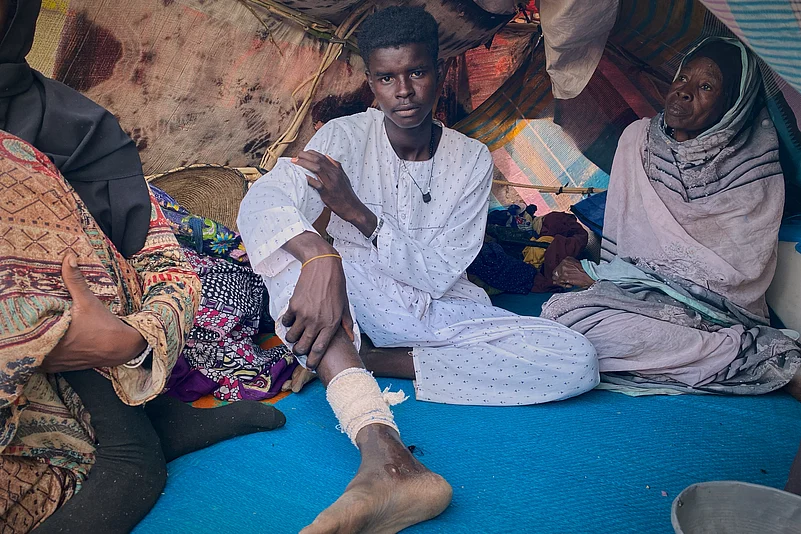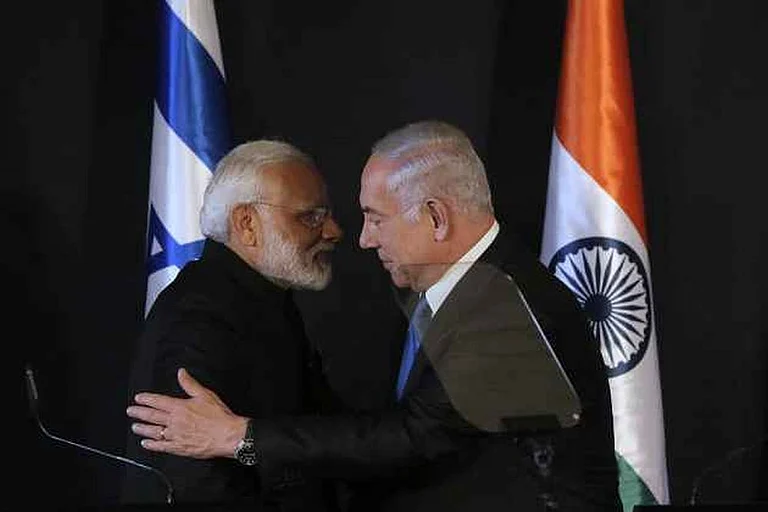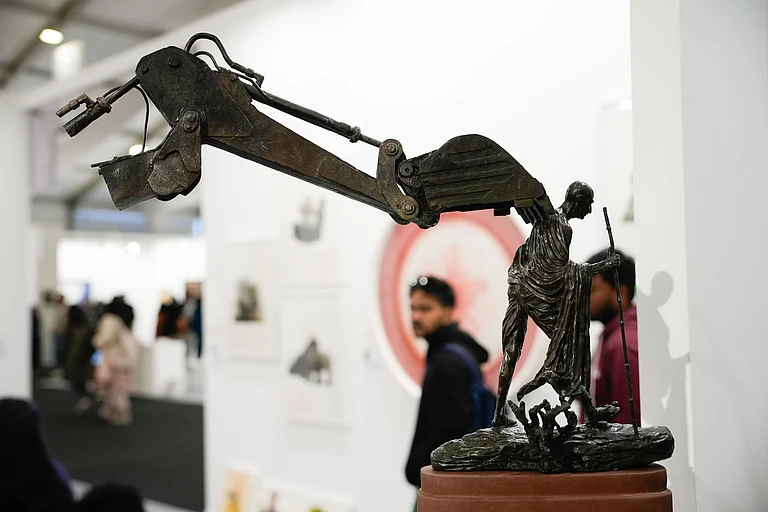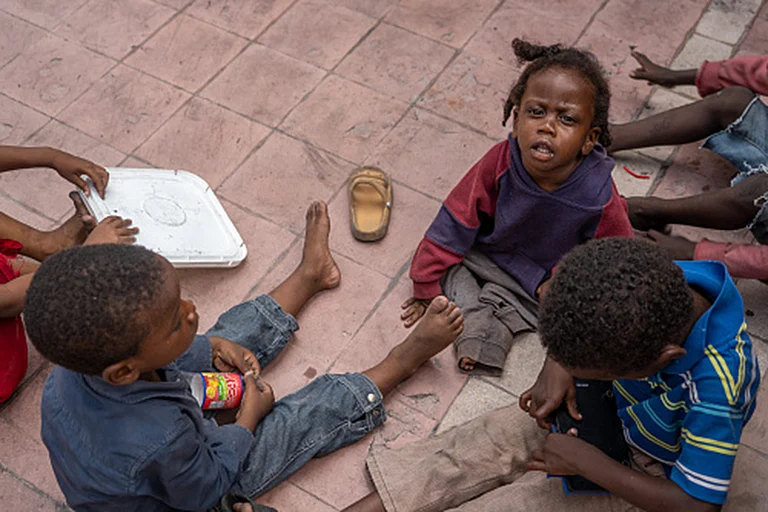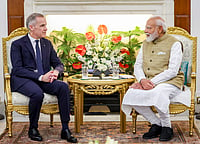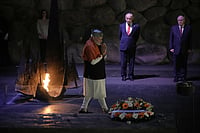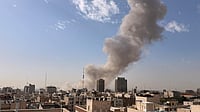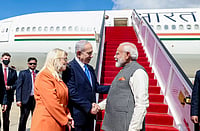
The Sudanese Armed Forces and the Rapid Support Forces have been locked in a civil war in Sudan for three years.
The Civil War is largely the result of the actions of two powerful men. General Abdel Fattah al-Burhan heads the Sudanese Armed Forces. His deputy, General Mohamed Hamdan Dagalo, commonly known as Hemedti, commands the RSF.
Reports say as many as 2,000 civilians were killed in the first twenty-four hours after the RSF took El Fasher.
Sudan’s three-year civil war took another grim turn over the weekend. The Rapid Support Forces (RSF) overran the Sudanese Armed Forces (SAF) military headquarters in the town of El Fasher, in the Darfur region.
After capturing the town, the RSF executed able-bodied young men suspected of loyalty to the Khartoum government. They raped women, both young and old. Unarmed civilians, including children, were massacred. The RSF unleashed such brutality that human rights groups called it nothing less than genocide. Reports say as many as 2,000 civilians were killed in the first twenty-four hours after the RSF took El Fasher.
The ambition and power lust of the rival generals have spiralled into a humanitarian catastrophe. The RSF is currently in focus, but the SAF is no better. The SAF has also acted brutally while taking over RSF-held territory. Entire communities are caught in the crossfire. Cities have been emptied, and countless families are forced to flee. The two armed blocs fight to shape Sudan’s future. Ordinary civilians on both sides pay the highest price for this never-ending civil strife. The death toll since fighting began three years ago is estimated at over 140,000, according to the UN and aid agencies. Famine and disease are widespread. Around half of Sudan’s 51 million people now depend on humanitarian aid. Reaching aid to active war zones is difficult.
According to an Oxfam report, over 30 million people in Sudan require humanitarian assistance. This is the highest in a single country in recent history. Yet, international support is falling severely short. Only 10 per cent of this year’s UN humanitarian appeal for Sudan has been met. The recent suspension of about $64 million in USAID funding for Chad and South Sudan also dealt a severe blow to lifesaving efforts. In 2024, the U.S. was the largest donor to both countries. The helpless civilians caught in the crossfire between powerful generals bear the brunt of the civil strife.
Friends Turned Foes
The Civil War is largely the result of the actions of two powerful men. General Abdel Fattah al-Burhan heads the Sudanese Armed Forces. His deputy, General Mohamed Hamdan Dagalo, commonly known as Hemedti, commands the RSF. They are fighting for control of the country. Ironically, these two men have a long history of working together. They joined hands in 2003 to crush rebels who rose up against the federal government in Darfur. Though Hemedti is from Darfur, he fought for the Sudanese government. He collaborated with Hamdan, then serving in Darfur, to bring the restive region under control.
During this operation, it is alleged that the Sudanese military massacred over 300,000 people in Darfur. They united again to overthrow the civilian-military government that replaced long-time president Omar al-Bashir in 2019. The new government did not last long. Another military coup took place in October 2021. Both generals again worked together, but now, with the country under control, ambition came to the fore.
Differences arose over the fate of the 1,00,000-strong RSF. These forces were intended to integrate with the Sudanese army, but the question of who would lead this new force remained unresolved. Dagalo, the RSF chief, did not want his men commanded by anyone else. Neither general was willing to lose control for the greater good of the country. Tensions grew as their men waited. Both sides finally chose to fight for control, starting April 15, 2023.
The RSF took over the capital, Khartoum, from the army and held it for almost two years. However, this year, on March 26, the SAF succeeded in taking over the presidential palace, the airport, and most of the surrounding area in Khartoum.
No Clear Winner
Neither the SAF nor the RSF can control the entire country. The country is fragmenting into zones. The SAF holds Khartoum and the east, while the RSF is strong in the west and southwest, including the Darfur region. The capture of El Fasher has consolidated the RSF’s position in Darfur.
Foreign help: Despite denial by all countries, it is well known that neither side could have continued fighting without outside help. Outsiders supplied a steady stream of weapons. The Sudanese government accuses the UAE of helping the RSF with not just weapons but also mercenaries. Abu Dhabi denies the charges. The UAE condemned the RSF’s atrocities against civilians and announced $100 million as humanitarian aid. Khalifa Haftar, an eastern Libyan strongman, is also accused by the Sudanese government of supplying arms and fuel to the RSF on behalf of the UAE. Chad is also accused. According to Sudanese authorities, Chad’s president, Idriss Deby Itno, helps the RSF maintain its supply lines. Both the UAE and President Itno have denied these charges.
General Burhan and the Sudanese Armed Forces are backed by Egypt, Saudi Arabia, Turkiye, and Iran.
The US Angle
Perhaps Sudan needs a Donald Trump to try his hand at peacemaking between the warring generals. Nothing else has worked so far. The African Union (AU), as a regional force, has failed. The AU has done little more than issue statements. Member countries may support different factions in the civil war, leading to division. Trump could get regional powers like Egypt, Saudi Arabia, and the UAE to bring the two factions to the table.







